Planetary Science
-
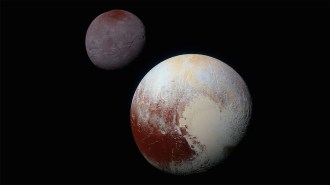 Planetary Science
Planetary SciencePluto may have captured its moon Charon with a kiss
When Pluto met Charon, there was an instant connection, new simulations suggest.
-
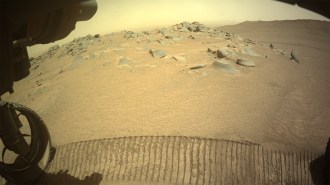 Planetary Science
Planetary ScienceNASA’s Perseverance rover found a new potential setting for Martian life
Now atop Jezero Crater, the robotic explorer found quartz indicative of habitable environments and possibly the oldest rocks yet seen in the solar system.
By Nikk Ogasa -
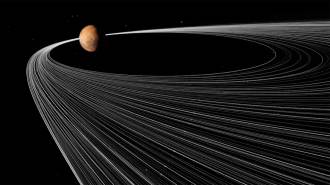 Planetary Science
Planetary ScienceMars’ potato-shaped moons could be the remains of a shredded asteroid
Phobos and Deimos could have formed from asteroid debris, a new study suggests. An upcoming sample return mission will help test the idea.
-
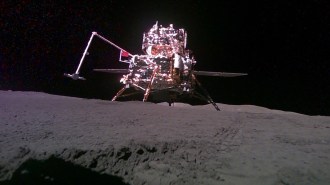 Planetary Science
Planetary ScienceA first look at rocks from the lunar farside create a volcanic mystery
Rocks returned by China’s Chang’e-6 mission suggest volcanic activity just 2.8 billion years ago but lack telltale heat-generating elements.
-
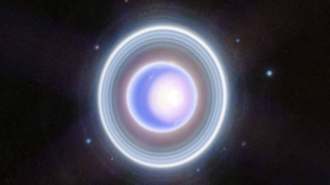 Planetary Science
Planetary ScienceUranus may have looked weird when NASA’s Voyager 2 flew by
A solar wind event days before the NASA probe flyby in 1986 may have compressed the planet’s magnetosphere, making it look odder than it usually is.
-
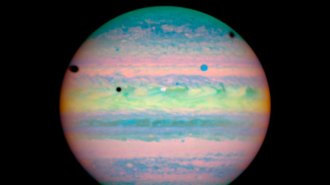 Planetary Science
Planetary Science50 years ago, scientists found a new moon orbiting Jupiter
In 1974, astronomers discovered Jupiter’s 13th moon. They now know of at least 95 moons and have launched missions to study some up close.
-
 Planetary Science
Planetary ScienceThe cataclysmic origins of most of Earth’s meteorites have been found
Just a few smashups in the asteroid belt may account for 70 percent of Earth’s meteorites, limiting what’s known about our solar system’s history.
-
 Planetary Science
Planetary ScienceNASA’s Europa mission is a homecoming for one planetary astronomer
Over her long career, Bonnie Buratti has seen the search for life in the solar system go from a joke to a flagship mission.
-
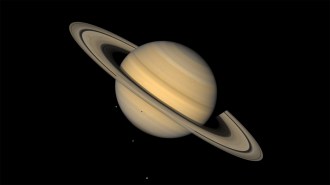 Planetary Science
Planetary ScienceSaturn’s first Trojan asteroid has finally been discovered
Saturn joins the sun’s other giant planets that have Trojans, space rocks that orbit along the same path.
By Ken Croswell -
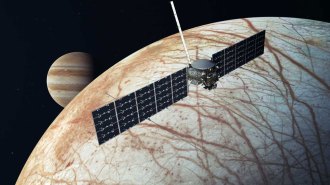 Planetary Science
Planetary ScienceEuropa Clipper has launched to solve an alien mystery
Launched October 14, the spacecraft will repeatedly buzz Europa in search of water, energy and organic compounds.
-
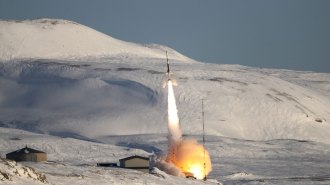 Planetary Science
Planetary ScienceScientists find a long-sought electric field in Earth’s atmosphere
The Earth’s ambipolar electric field is weak but strong enough to control the shape and evolution of the upper atmosphere.
-
 Planetary Science
Planetary ScienceThe Webb telescope’s peek into a stellar nursery finds baby planets too
Images by the James Webb telescope of six Jupiter-sized worlds, one of which may have a moon-forming disk, reveal clues into how planets and stars form.
By Adam Mann